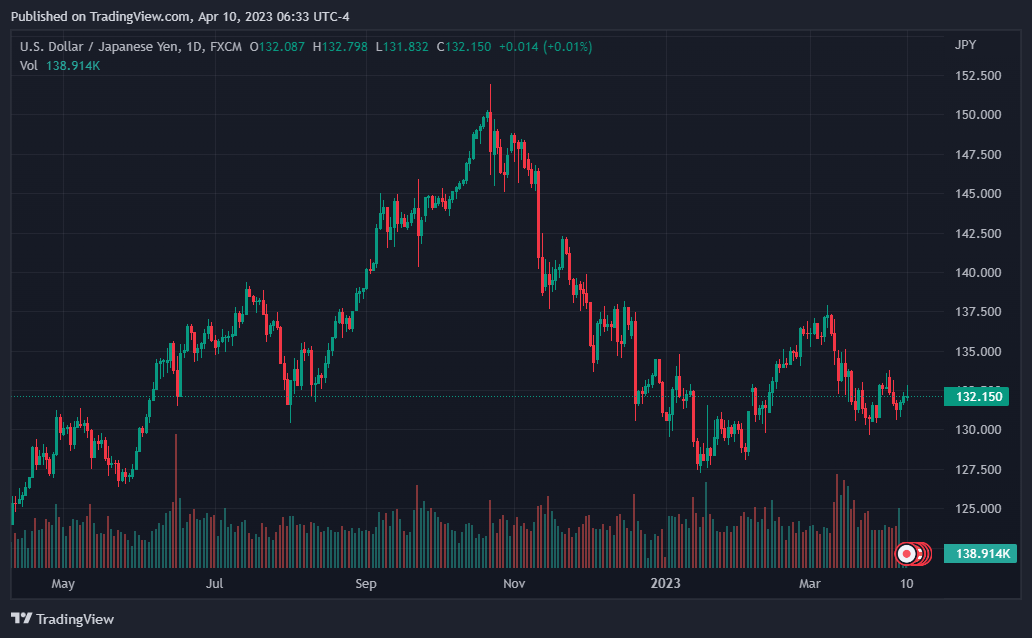Bank of Japan's new Governor, Ueda, to conduct first press conference at 1015 GM
Kazuo Ueda, the new governor of the Bank of Japan (BOJ), held his inaugural press conference on Monday at 10:15 GMT, following his first day in office on Sunday. Ueda, a 71-year-old former BOJ policy board member and an academic at Kyoritsu Women's University, was appointed by the government on Feb. 14 to succeed Haruhiko Kuroda, whose second five-year term ended on April 8.
Ueda is the first BOJ governor from academia in postwar Japan, and he faces a challenging task of steering the central bank's monetary policy amid the global economic recovery from the COVID-19 pandemic, rising inflation pressures, and the negative side effects of prolonged easing.
In his press conference, Ueda outlined his views on the current state of the Japanese economy and inflation, as well as his policy stance and priorities for the BOJ. He also answered questions from reporters on various topics, such as his relationship with Prime Minister Fumio Kishida, his assessment of Kuroda's legacy, and his expectations for the upcoming policy review by the BOJ.
HERE ARE SOME OF THE MAIN POINTS FROM UEDA'S PRESS CONFERENCE:
- Ueda said that Japan's economy is recovering moderately as domestic and overseas demand picks up, but he also noted that the outlook remains highly uncertain due to the pandemic and its impact on supply chains and consumer behavior. He said that he will closely monitor the economic indicators and adjust the policy as needed.
- Ueda said that Japan's inflation has risen above 2 percent recently, mainly due to higher energy and food prices, but he added that this is a temporary phenomenon and that the underlying trend of inflation remains weak. He said that he will continue to aim for achieving stable 2 percent inflation as soon as possible, while taking into account the balance of risks and benefits of monetary easing.
- Ueda said that he will maintain the current framework of monetary policy, which consists of three elements: negative interest rates, yield curve control, and asset purchases. He said that he will not hesitate to take additional easing measures if necessary to achieve the price stability target.
- Ueda said that he will also pay attention to the side effects of monetary easing, such as its impact on financial intermediation and market functioning. He said that he will conduct a comprehensive assessment of the policy effects and costs at least once a year, as part of the regular policy review by the BOJ.
- Ueda said that he will communicate closely with Prime Minister Kishida and other government officials on economic and financial issues, while respecting each other's independence. He said that he met with Kishida on Monday morning and exchanged views on various topics.
- Ueda said that he respects Kuroda's achievements in implementing bold and innovative monetary easing measures to overcome deflation and support economic growth. He said that he will build on Kuroda's legacy and pursue his own policy direction based on his academic background and experience.
- Ueda said that he expects the policy review by the BOJ to be completed by June this year. He said that he will solicit opinions from various stakeholders, such as financial institutions, market participants, academics, and media representatives, to enhance the transparency and effectiveness of the policy.
Ueda's press conference was widely watched by investors and analysts who were eager to get a glimpse of his personality and policy stance. Some observers said that Ueda sounded confident and pragmatic, while others said that he lacked charisma and clarity. The market reaction was muted, as Ueda did not signal any major changes to the BOJ's policy direction.





















